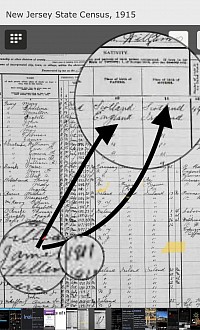Ask Us
FREQUENTLY ASKED QUESTIONS
1. How can genealogical services help me in tracing my family history?
Genealogical services have a team of skilled genealogists and historians who can assist you in uncovering your family history. They have access to extensive databases and conduct meticulous research to provide valuable insights into your lineage. They can help you trace your family tree, uncover hidden connections, and discover the untold narratives of your ancestors.
2. What information do I need to provide to start a genealogical research project?
To start a genealogical research project, it is helpful to provide as much information as possible about your family, such as names, dates of birth, marriage, and death, locations, and any known family stories or documents. The more details you can provide, the better equipped the genealogical services will be to assist you in your research.
3. *How far back in history can genealogical services trace my family tree?
The extent to which genealogical services can trace your family tree depends on various factors, including the availability of records and the quality of information provided. In general, they aim to trace your lineage as far back as possible, but the depth of research may vary for each individual. They will strive to provide accurate and comprehensive insights into your family history.
4. Can genealogical services help me find living relatives or connect with long-lost family members?
Genealogical services can help you in finding living relatives or connecting with long-lost family members, but the success of such endeavors depends on various factors. They may use available records, DNA testing, and other methods to identify potential relatives. However, it's important to note that locating living relatives or making connections is not always guaranteed.
5. *How long does it typically take to complete a genealogical research project?
The time required to complete a genealogical research project can vary depending on the complexity of the research, the availability of records, and the amount of information provided. Some projects may take a few weeks to a few months, while others may require more extensive research and could take several months or even years. The genealogical services will provide an estimated timeline based on your specific project.
6. What types of records and sources do genealogical services access during their research?
Genealogical services have access to a wide range of records and sources to conduct their research. This may include vital records (birth, marriage, death), census records, immigration records, military records, land records, wills, newspapers, and more. They may also utilize online databases, archives, libraries, and other resources to gather information relevant to your family history.
7. Can genealogical services assist with DNA testing and analysis to uncover more about my ancestry?
Yes, genealogical services can often assist with DNA testing and analysis. They may collaborate with reputable DNA testing companies to provide insights into your ancestry, genetic connections, and ethnicity estimates. They can help interpret the results and incorporate the genetic information into your overall family history research.
8. How much does it cost to use genealogical services, and what are the payment options?
The cost of genealogical services can vary depending on the scope of the project, the amount of research required, and the specific services offered by the company. It is best to contact the genealogical services directly to inquire about their pricing structure and available payment options. They will provide you with detailed information regarding the cost and payment methods.
9. Can genealogical services help me join lineage or heritage societies?
Yes, genealogical services can often assist you in joining lineage or heritage societies. These societies often have specific requirements for membership, such as proving a direct ancestral connection to a particular individual, event, or organization. Genealogical services can help you gather the necessary documentation and meet the eligibility criteria for joining these societies.
10. How accurate are the findings and information provided by genealogical services?
Genealogical services strive to provide accurate and reliable information based on the research conducted and the available records. However, it's important to note that genealogy is a field that relies on historical records, which may contain errors, inconsistencies, or missing information. Genealogists utilize their expertise to evaluate and cross-reference multiple sources to establish the most accurate representation of your family history. It's always recommended to critically review the findings and consult with the genealogical services if you have any questions or concerns.?
11. How accurate are the findings and information provided by genealogical services?
Genealogical services strive to provide accurate and reliable information based on meticulous research and cross-referencing of multiple sources. While historical records may contain errors or missing information, genealogists use their expertise to establish the most accurate representation of your family history. It's always recommended to critically review the findings and consult with the genealogical services if you have any questions or concerns.
12. Can genealogical services provide assistance with legal matters such as inheritance or citizenship claims?
Genealogical services can provide valuable information that may support legal matters such as inheritance or citizenship claims. They can help uncover relevant family connections and provide documentation to substantiate your claims. However, it's important to consult with legal professionals for specific guidance on how to utilize the genealogical findings in legal contexts.
13. Will my privacy and personal information be protected during the research process?
Genealogical services understand the importance of privacy and the sensitivity of personal information. They have protocols in place to protect your privacy and ensure the confidentiality of your data. It's advisable to inquire about their privacy policies and measures before engaging their services to ensure your information is handled securely.
14. Can genealogical services help me verify or confirm existing family history information?
Yes, genealogical services can assist you in verifying or confirming existing family history information. They will conduct research, analyze available records, and cross-reference information to validate the accuracy of your family history. They can also identify any gaps or discrepancies in the information and work towards resolving them.
15. Do genealogical services offer any support or guidance in understanding and interpreting the research findings?
Yes, genealogical services often provide support and guidance in understanding and interpreting the research findings. They can help you make sense of complex genealogical terminology, explain the historical context, and provide insights into the significance of the findings. They aim to ensure you have a comprehensive understanding of your family history.
16. Are there any limitations or challenges in genealogical research that I should be aware of?
Genealogical research can have limitations and challenges. Some common obstacles include incomplete or missing records, variations in name spellings, limited access to certain historical documents, and the passage of time affecting the availability of information. Genealogical services will inform you about any limitations specific to your research project and work diligently to overcome these challenges.
17. Can genealogical services assist me in creating a visually appealing family tree or pedigree chart?
Yes, genealogical services can help you create a visually appealing family tree or pedigree chart. They can organize and present your family history in a clear and visually appealing format. Whether you prefer a traditional family tree or a more elaborate graphical representation, they can tailor the presentation to meet your preferences.
18. Can genealogical services help me understand the cultural and historical context of my ancestors?
Genealogical services have a deep understanding of the cultural and historical context of various time periods and regions. They can provide insights into the social, political, and economic factors that shaped the lives of your ancestors. They aim to help you understand the broader historical context in which your family history unfolds.
19. What qualifications or expertise do the researchers or genealogists at the service possess?
Genealogical services employ researchers and genealogists with diverse qualifications and expertise. They may have degrees in history, genealogy, or related fields and possess extensive experience in genealogical research. It is advisable to inquire about the credentials of the researchers or genealogists working on your project to ensure their expertise aligns with your research needs.
20. Can genealogical services provide references or testimonials from previous clients?
Yes, genealogical services can often provide references or testimonials from previous clients upon request. These references can give you insights into the experiences of others who have used their services and help you assess the quality and satisfaction of their work.
21. Is there ongoing support or assistance available after the completion of the research project?
Genealogical services may offer ongoing support or assistance after the completion of the research project. This could include answering follow-up questions, providing additional guidance, or offering further research options. It's recommended to inquire about the post-project support options available to ensure continuity in your genealogical journey.


